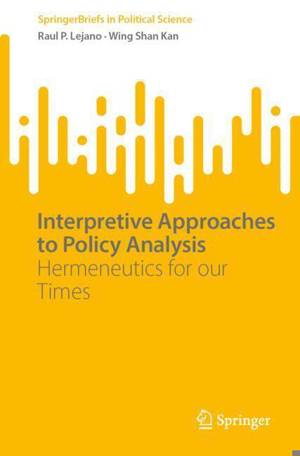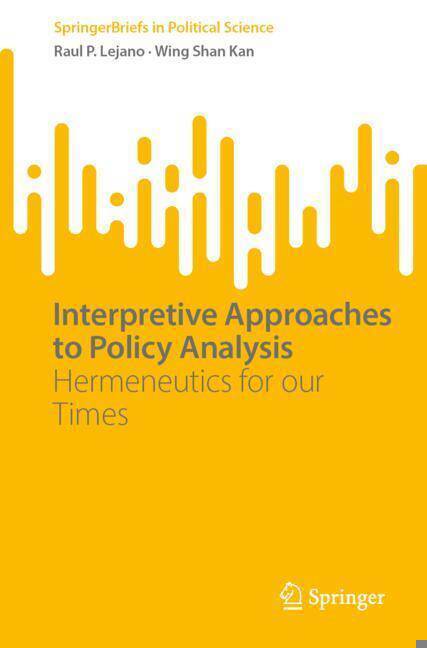
- Afhalen na 1 uur in een winkel met voorraad
- In januari gratis thuislevering in België
- Ruim aanbod met 7 miljoen producten
- Afhalen na 1 uur in een winkel met voorraad
- In januari gratis thuislevering in België
- Ruim aanbod met 7 miljoen producten
Omschrijving
This Brief provides researchers with an introduction to interpretive approaches for analyzing public policies. It introduces several real-world policy situations where the lack of an interpretive focus limits the analysis and precludes better policy responses. It takes an integrative point of view, with an openness to combining the insights from interpretive and positivist approaches in policy analysis, noting the ability of the interpretive approach to make sense of data while uncovering the otherwise hidden ideological and normative bases of other types of analyses. While not a 'how-to" methods book, this Brief provides sufficient discussion of different ways to find meaning in texts, such as narrative and discourse analysis, or cultural/ethnographic readings of the social and material artifacts found in a place, as well as uncovering meaning from direct engagement with subjects through interviews, action research, and other strategies. The main intent of the book is to convince policy scholars of the usefulness of interpretive thinking, which entails answering the questions: "what does it mean to interpret?" and "what do we gain from interpreting?" As such, this Brief will be of interest to scholars in public policy, public administration, and political science as well as researchers in applied fields (e.g., environmental studies, race and gender studies, urban planning, sociology) engaged in policy analysis.
Specificaties
Betrokkenen
- Auteur(s):
- Uitgeverij:
Inhoud
- Aantal bladzijden:
- 64
- Taal:
- Engels
- Reeks:
Eigenschappen
- Productcode (EAN):
- 9783031838996
- Verschijningsdatum:
- 20/03/2025
- Uitvoering:
- Paperback
- Formaat:
- Trade paperback (VS)
- Afmetingen:
- 161 mm x 233 mm
- Gewicht:
- 122 g

Alleen bij Standaard Boekhandel
Beoordelingen
We publiceren alleen reviews die voldoen aan de voorwaarden voor reviews. Bekijk onze voorwaarden voor reviews.









